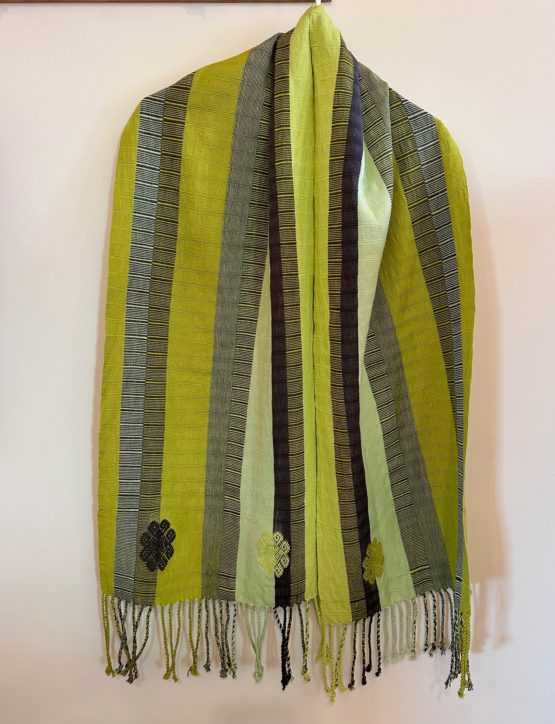Thursday, February 23 to Wednesday, February 29, 2012.
This retreat will enhance couples communications skills using ABC Change Process ®. Stephen Hawthorne, LCSW, developed this proven, successful approach over the past 30 years in private practice and teaching in Duke University School of Medicine Department of Psychiatry’s Family Studies Program and Clinic where he trains and coaches psychiatry residents and psychology interns to use the ABC Change Process ® for their work with couples and families. Up to 4 couples will be accepted to participate.
Oaxaca, Mexico, is a remarkably beautiful, peaceful and culturally rich city where committed couples can truly “get away” from day-to-day pressures at home, allowing them to focus uniquely on each other and their relationship. This experience offers dedicated time to renew your intimate connection away from intense demands of work, family, and the distractions of daily routine. At the same time, traveling together in a foreign country offers excitement and challenges, along with opportunities for improving communication and closeness.
Retreat days will offer a mix of group seminars, experiential exercises, private couples consultations, and special activities tailored to each couples’ needs and desires. Throughout the retreat week, we include scheduled one-on-one customized and confidential sessions with each couple to further explore and invigorate the relationship. There will also be plenty of free time to discover the UNESCO heritage site of Oaxaca, a 16th century historic city, dine in exceptional restaurants, stroll through museums and galleries, visit renown archeological sites and take in the vibrant nightlife as you practice the skills you are developing.
Even the happiest marriages can get stuck when trying to resolve difficult issues. In this safe, supportive environment, couples will have the opportunity to improve communication skills and create a closer bond with increased marital satisfaction.
By participating, you and your partner will:
- Improve your understanding of each other’s needs and desires.
- Increase your ability to express your own needs and desires.
- Gain a clear understanding of the Problem Communication Pattern that keeps you stuck having the same argument over and over in some important area.
- Learn multiple ways of interrupting that Pattern and creating breakthrough with mutual resolution.
- Increase your ability to give and receive feedback, bringing you closer together.
- Develop the greater warmth and intimacy that meaningful and successful communication creates.
Plus add-on extra days for a cooking class and market excursions.
About Your Facilitator—Stephen L. Hawthorne, LCSW

Stephen Hawthorne
Stephen Hawthorne was hired by the Duke University School of Medicine Department of Psychiatry in 1981 to create their first training program in Family and Marital Therapy. He has taught in the program ever since. Over the years, scores of psychiatry residents and psychology interns have learned and applied his ABCTherapy(R) model.
For a podcast about how and why ABCTherapy is so effective, click here.
As a couples and family psychotherapist in private practice for the past 30 years, Stephen Hawthorne has helped hundreds of people to create more satisfying and intimate relationships. He has presented at many professional conferences to excellent reviews, and is founder of the Family Institute of the Triangle. Hawthorne holds an A.B. with Honors in Political Science and French from the University of North Carolina at Chapel Hill and his MSW from the University of California at Berkeley. He is a licensed clinical social worker with expertise in working with and teaching about gender issues, sexuality, chronic illness, death and dying, and palliative care. In addition, he has lived and traveled in both Europe and the developing world which gives him a keen awareness of cross-cultural issues.
Who Should Attend:
The retreat will benefit all couples that are committed to improving their relationship – even if it is already pretty good! It is not for people who are trying to decide if they should get married or stay married. Creating true intimacy can be hard work, so being committed to the relationship is an essential condition for attending.
We suggest that each couple have a personal conversation with Stephen before registering to get any questions answered and to see if the workshop will fit your needs. He can do this with you via Skype or telephone. Please contact him at phone (919) 942-8097 or email stephen@stephenhawthornelcsw.com. If either or both partners are in therapy at home, we request that they discuss attending this workshop with their therapist and clarify potential benefits as well as potential pitfalls.
Typical Daily Schedule
Arrival on Day One, check-in to your bed and breakfast, evening reception buffet and short orientation session.
Sample First Day
8:00-9:00 a.m.—Body movement and stretching
9:00-9:30 a.m. Breakfast
10:00 a.m.-1:00 p.m. – Group Session with Stephen, orientation/application of the ABC Change Process with discussion, handouts and experiential communications exercises with your partner.
1:00-2:00 pm. — Lunch
2:00-4:30 p.m. Some couples take part in private consultation with Stephen for in-depth personal guidance, while others are on their own for the rest of the day. On the days when couples do not have a session with Stephen scheduled,they may, at their leisure, enjoy the sights of Oaxaca and surrounding villages on your own. This is a perfect time to visit the many unique local galleries, museums, and shops.
Subsequent days will have private couples consultation appointments and other skill building group sessions as well as free time to take your new skills out into the city to develop together.
Lodging/Accommodations and Cost
We have selected a lovely, comfortable bed and breakfast inn located in the historic district of Oaxaca city. It is within easy walking distance of excellent restaurants, galleries, museums, churches and other historic sites. We will provide you with a list of “on-your-own” daily activities and arrange private transportation for you to visit outstanding local artisan villages and markets.
Cost: $2885 per couple/double occupancy. This includes private room with private bath, daily breakfast, daily supper, welcome reception buffet, all group facilitation and learning sessions, and private couples consultation sessions, resources and recommendations.
Add-on extra activity days:
[ ] Option A: Add-on 5-hour Oaxaca cooking class, includes local market shopping tour and lunch, on February 29 (depart March 1). Add $285 per couple (includes class, one night lodging, breakfast and lunch).
[ ] Option B: Add-on additional night lodging in Oaxaca on Thursday, March 1 (day on your own) at $145 per couple per night. Does not include additional activities. (depart Friday, March 2)
[ ] Option C: Add-on Artisan Villages Excursion on Friday, March 2 (depart Saturday, March 3), $325 per couple (includes one night lodging, group transportation, guided visit to Ocotlan de Morelos Friday market, visits to famed folk art potters and wood carvers, lunch on your own).
The retreat does NOT include airfare, taxes, gratuities, travel insurance, liquor or alcoholic beverages, lunches, and optional daily excursions on your own with associated transportation. We will provide you with directions for taxi or shuttle service from the airport to your bed and breakfast. We reserve the right to alter the program as needed.
Reservations and Cancellations
A 50% deposit based on your preferred options is required to guarantee your space. The final payment for the balance due (including any additional costs) shall be paid by January 20, 2012. Payment is accepted with PayPal. We will be happy to send you an invoice. Registrations made after January 20 shall be paid in full.
Please see our cancellation policy listed in the Programs section of the front page of our website. We recommend that you take out trip cancellation, baggage, emergency evacuation and medical insurance before you begin your trip, since unforeseen circumstances are possible.
To get your questions answered and to register, contact: oaxacaculture@me.com
This program is produced by Norma Hawthorne, Oaxaca Cultural Navigator LLC. We reserve the right to make itinerary changes and substitutions as necessary.








Oaxaca Love Story: Carol and David Get Married
On Thursday, January 12, at the bench in Labastida Park where they first met a bit more than two years ago, Carol Lynne Estes and David Levin got married.
Carol Lynne Estes and David Levin at Parque Labastida
It was one of those gorgeous late afternoon Oaxaca winter days punctuated with clear skies, bright sunshine, passersby on bicycles, street vendors hawking fresh roasted corn-on-the-cob, a group of salsa dancers in the adjacent space waiting for their teacher, school children with noses in open books, mothers towing recalcitrant children.
We gathered to witness and give support to a great couple!
As we gathered, Gail Schacter, a Victoria, B.C. snowbird, retold the story about how she introduced Carol and David. Seems that she and Carol had gone shopping to replenish incense sticks from the ceramics shop inside Plaza de las Virgenes. As they exited onto the street, Gail spotted David, who she knew, across the park on a bench eating a sandwich after his gym workout. They went to say hello. The rest, as they say, is history/herstory.
Oaxaca is a place for convergences, new discoveries, exploring identity, creating new beginnings. Living here has a way of opening us up to possibilities. It also stimulates us to see what we are capable of doing, being, becoming. This is not a new-age concept, but one more of what it means for some of us to live life more passionately, fully and in support of each other’s choices.
It is more than escaping the chilly north for a patch of winter sun and clear blue sky. Young and older gravitate here for so much more.
From the moment that Carol and David met, they were inseparable. Carol’s girlfriends had to get used to that! We quickly learned that this was a couple who stuck together, so an invitation to one was an invitation to both. Their devotion to each other, I think, expanded our capacity for friendship, inclusion and intimacy.
The park bench where it all began! Felicidades.
Some of us wondered about this unlikely couple, a Texas English teacher and a South African Jew who settled in Canada after university study there. Theirs is a model for respecting traditions and differences.
Carol, Gail and David remember introductions
In 2015, Carol and David traveled together throughout Asia for several months, learning to negotiate everything. And, it seems, they managed this pretty well. They didn’t kill each other! They returned to Oaxaca even more committed to their relationship and started planning their next adventure.
Mary and Carol, celebration time.
Life takes us in unpredictable directions. On a stopover in Toronto to visit family last summer before going on to India, David had a medical set-back. Now, with great Canadian health care, he is recovering well, but they need to be in Toronto until the treatment plan is complete.
Amidst the hubbub of a public park, a wedding!
David and Carol are making Toronto home for the time being, but they came back to Oaxaca to get married at the park bench where they first met. Oaxaca is their heart home. We gathered round in tribute to their love, commitment and testimony to all that Oaxaca can provide for each of us in different ways.
May your cup over-floweth–with mezcal, of course.
In Spanish: Saludos. In Zapoteco: Chichibayoh. In Hebrew: L’chaim. With Bob Klotz officiating and Mary Erickson standing as a matron of honor, we raised our cups of mezcal. What else would one drink at a Oaxaca wedding?
Divine lemon cake from La Pasion bakery in Colonia Reforma, tops off the event
Like this:
27 Comments
Posted in Cultural Commentary
Tagged expat, gringo, marriage, Mexico, Oaxaca, wedding